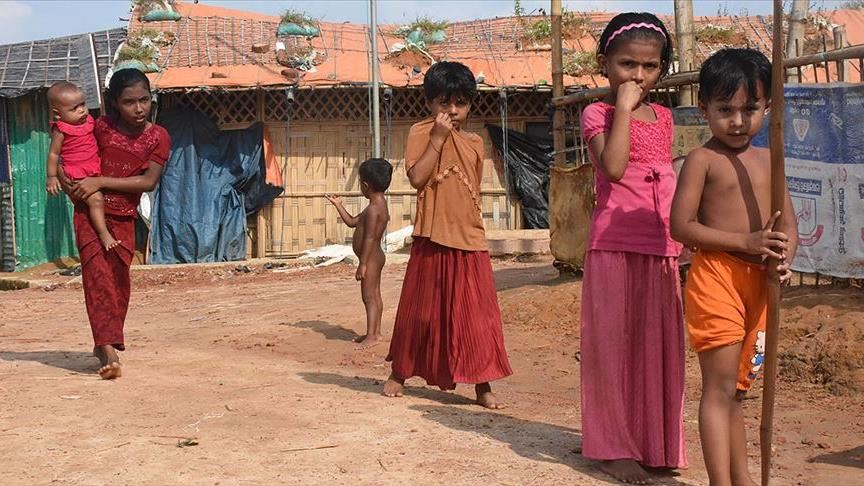
BUDAPEST
The international media has reacted to a joint statement by Myanmar and Hungary about Muslims in the Southeast Asia and Europe.
Myanmar's defacto leader Aung San Suu Kyi and Hungarian Prime Minister Viktor Orban met in Budapest earlier this month. Orban's office issued a statement that their meeting focused on challenges posed by immigration and the issue of "coexistence with continuously growing Muslim populations".
American website Vox writer Alex Ward evaluated the statement saying: "We either want to keep Muslims away from us or kill them."
He added: "Over the past two years, Suu Kyi has stood by during the genocide of Myanmar’s Rohingya, a long-persecuted Muslim minority group."
Meanwhile, Orban has taken drastic measures to stop migrants from entering Hungary.
"Orban has described migrants from the Middle East and Central Asia who are fleeing violence and economic hardship as 'Muslim invaders' and has taken dramatic measures to curtail the number of immigrants entering Hungary, including constructing a massive barbed-wire fence along the border with Serbia," said Ward.
Guardian newspaper carried a story titled: "Aung San Suu Kyi finds common ground with Orban over Islam".
Guardian reporter Hannah Ellis-Petersen said Suu Kyi who came to power as a civilian leader after spending 15 years under house arrest had been a great disappointment.
"Her failure to condemn the military’s violent crackdown on the Muslim Rohingya minority in 2017 -- which saw thousands of Rohingya raped and killed in what the UN described as an exercise in ethnic cleansing -- and her defence of the military’s brutal actions against Myanmar’s Muslims have proved particularly contentious.
"Aung San Suu Kyi’s government has since repeatedly failed to offer assurances to the million Rohingya now living in refugee camps in Bangladesh, where they fled over the border for safety, that if they return their security and pathway to citizenship would be guaranteed," she said.
The Rohingya, described by the UN as the world's most persecuted people, have faced heightened fears of attack since dozens were killed in communal violence in 2012.
According to Amnesty International, more than 750,000 Rohingya refugees, mostly women and children, have fled Myanmar and crossed into Bangladesh after Myanmar forces launched a crackdown on the minority Muslim community in August 2017.
The UN has also documented mass gang rapes, killings – including of infants and young children – brutal beatings and disappearances committed by Myanmar state forces.
In a report, UN investigators said such violations may have constituted crimes against humanity.
In Hungary, where only 0.2 percent of the population is Muslims, many government officials, including Orban, claim that Europe has been overrun by Muslim asylum seekers.
Anadolu Agency website contains only a portion of the news stories offered to subscribers in the AA News Broadcasting System (HAS), and in summarized form. Please contact us for subscription options.







